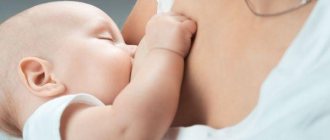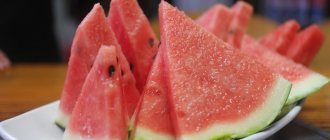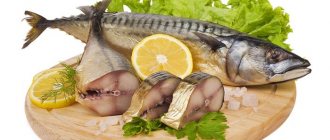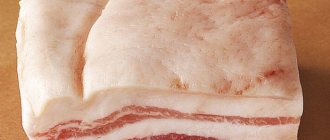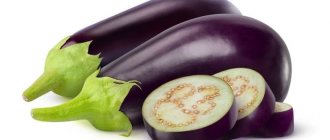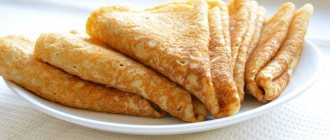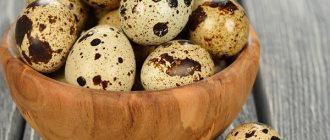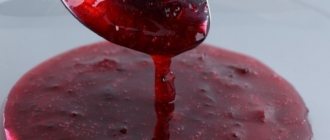An article about whether a nursing mother can drink non-alcoholic beer or not.
Although non-alcoholic beer it still contains alcohol, albeit a little, 0.1-2.0% .
Non-alcoholic beer began to be produced in the 30s of the 20th century in the USA, during the introduction of the anti-alcohol law, so as not to stop the alcohol production workshops.
Real beer (alcoholic) used to be made from barley malt, hops and water. It should ferment for several months. But this technology is not suitable for modern businessmen. And to speed up fermentation, all kinds of preservatives, chemicals and harmful additives are added to beer .
Here are some of them:
- The preservative sodium benzoate is a strong carcinogen, affects DNA, often causes allergies, it is added to enhance color and extend shelf life.
- The chemical compound cobalt has a bad effect on the functioning of the heart, stomach and intestines; this substance is added to beer to preserve foam.
- Sugar substitute - fruit-glucose syrup , does not produce energy in the body, but is immediately stored in fat.
Non-alcoholic beer also contains all these substances; the amount of alcohol in it has only been reduced.
Whether or not a nursing mother can drink non-alcoholic beer – opinions differ. Some doctors think it is possible. But there are many cases where a child was harmed by beer drunk by his mother.
Does beer pass into breast milk and after how long?
Alcohol from non-alcoholic beer drunk by the mother immediately passes into breast milk during breastfeeding.
When breastfeeding a baby, everything that the nursing mother eats and drinks ends up in breast milk.
Alcohol from non-alcoholic beer also passes directly into breast milk if a woman drinks it. The alcohol concentration in breast milk is the same as in a woman's blood .
If a woman drinks 1 glass of beer once, then nothing will come of it. Alcohol can seriously affect a child if a woman drinks frequently and in large quantities.
This is what happens in the female body with frequent consumption of non-alcoholic beer:
- Beer has a diuretic effect, and therefore flushes potassium from the body.
- A woman's body produces male hormones
- Lactation decreases
- Increased appetite and you may gain excess weight
- Headaches become regular
The effect of non-alcoholic beer on breast milk production
It is believed that drinking beer, including non-alcoholic beer, increases breast milk production. This is partly true, but only if barley was used as a raw material for the foamy drink.
Results from studies conducted in Spain showed that drinking non-alcoholic beer increased the antioxidant capacity of breast milk and reduced oxidative damage after childbirth in nursing mothers [4].
Indeed, there is a connection between drinking beer and increasing the level of the hormone prolactin. The exact reason for this fact has not been identified, but presumably the increase in the amount of the hormone in the blood is influenced by compounds obtained from barley. Stimulation of lactogenesis occurs in the same way when consuming non-alcoholic beer [6].
At the same time, even a small ethanol content inhibits the production of oxytocin, the hormone responsible for the “removal” of milk. As a result, the baby receives less milk per feeding [11].
How long does it take for beer to be eliminated while breastfeeding?
Alcohol from non-alcoholic beer drunk by the mother is eliminated during breastfeeding no earlier than after an hour and a half.
Alcohol from breast milk when a woman drinks non-alcoholic beer is eliminated from one and a half to two and a half hours . It all depends on the drink you drink; if you drink more, it will take longer to be eliminated.
You should also know:
- The less a woman weighs, the longer it will take for alcohol to be eliminated.
- Remember, if you get drunk literally from one sip , it means that your body has few enzymes to absorb alcohol or is intolerant to it, then you need to completely give up alcohol.
Benefits and harms
Why do many nursing mothers have an unbearable desire to drink this drink? “Nulevka,” like its alcoholic prototype, has a pleasant bready smell, telling our body that the product contains yeast that can enrich its cells with important B vitamins. The latter are necessary for normalizing metabolism, the process of producing blood and regulating its composition, as well as improve vascular tone and accelerate cell regeneration.
Our body, through food desires, gives us a signal about the deficiency of certain elements. If a woman wants non-alcoholic beer while breastfeeding, her cells may not have enough vitamins B1 and B2. You can also get them from other products: for example, from black bread, bran, red meat, liver and greens.
Useful composition
In addition to B vitamins, the foamy drink contains a lot of other elements important for our body:
- silicon;
- potassium;
- phosphorus;
- selenium;
- complex carbohydrates;
- vegetable fibers;
- antioxidants.
But such a useful composition will only be found in natural brewed beer. Products made from powder with the addition of alcohol and flavorings do not contain the listed elements. They are also not found in non-alcoholic beer drinks, which are created using a special technological process.
How is it made?
The production of “nulevka” at breweries begins in the same way as the production of regular beer.
In some factories, a plant base of hops and malt is brewed, and then, as a result of fermentation, the raw material is obtained, from which ethanol is then removed in several stages. In other industries, the semi-finished product is made from a mixture of powders, into which a small volume of alcohol is then added “for taste” in the dosage allowed according to the specifications.
Since suppression of fermentation processes at the final stage of production of “nulevka” greatly worsens the taste of the product, to improve this parameter, flavors and emulsifiers are added to the raw materials in production.
Alcohol in non-alcoholic beer
If you have already tried non-alcoholic beer while breastfeeding, you probably noticed a slight intoxication after drinking a few sips. It has nothing to do with psychology - “nulevka” does indeed contain alcohol in small quantities, but it still contains alcohol.
Non-alcoholic beer is not at all safe for a breastfeeding baby, since the product contains up to 1.5% alcohol. This drink should be consumed during breastfeeding with the same moderation and caution as regular beer.
Other dangers
In addition to alcohol, which can negatively affect the functioning of a child’s nervous system, soft drinks contain a lot of other elements harmful to the baby:
- Preservatives and flavorings that are part of a drink drunk by a nursing mother can cause a strong allergic food reaction in a breastfeeding baby.
- Natural hops, which are contained in a quality product, can also cause a rash and diarrhea in a child.
- Traces of carbon dioxide in breast milk can lead to painful colic in the baby.
- The increased sugar content in “nulevka” can lead to an increase in glucose levels in the baby’s blood and provoke colic.
What happens if a nursing mother drinks beer?
Alcohol from non-alcoholic beer drunk by the mother while breastfeeding can harm the baby, and even lead to death if beer is consumed constantly.
The baby’s body does not yet have an enzyme that breaks down alcohol .
Even a small dose of alcohol can cause a child:
- To allergies
- To an upset stomach
- To liver diseases
- To an unbalanced nervous system
- In rare cases, epilepsy
- Sometimes even to death
If a woman sometimes drank non-alcoholic beer during pregnancy, then less harm was done to the baby’s health than now when he was born. In the mother’s belly, the child was protected by the placenta, and now he is completely defenseless , and only the mother can protect him by choosing and consuming foods that are healthy for the child .
If a young mother wants beer , then this should alert the woman, and she should reconsider her diet . If you want beer, it means your body lacks B vitamins and vitamin D.
These vitamins are found in these foods:
- Bran bread
- Vegetables
- Meat
- Dairy products
The effect of ethanol on the baby's body
Studies have shown that ethanol quickly (literally within 10-15 minutes) penetrates into breast milk and is passed on to the infant. Unfortunately, there is no established safe limit, so it is important to protect children from the effects of alcohol.
The breakdown of alcohol in an infant's body occurs much more slowly than in adults, so even small doses can lead to unpredictable consequences.
It has been proven that ethanol negatively affects the nervous system of babies and delays the development of infants [3].
Expert opinion
Sokolova L. S.
Pediatrician of the highest category
A small amount of ethyl alcohol and hop extract that reaches the baby through mother's milk causes the baby to become drowsy. He falls asleep without having eaten, and his mother thinks that he is full. There was a tendency for poor weight gain in children whose mothers regularly drank beer.
Beer for milk lactation in nursing women
The fact that non-alcoholic beer increases the amount of breast milk in a woman is a myth; lactation can be enhanced by drinking herbal tea with milk.
In Japan, they produce non-alcoholic beer, specially intended for young mothers, which, according to experts, increases the amount of breast milk.
Maybe in Japan there is such beer, but here, in the post-Soviet space, non-alcoholic beer does not have such properties . Some scientists and doctors prove the opposite, but no one has yet confirmed that beer stimulates lactation.
For this purpose, there are special teas , drunk warm, which enhance lactation.
Can a nursing mother drink non-alcoholic beer?
There is no clear answer to this question. Some experts speak out strongly against such a product throughout the entire period of breastfeeding. Others argue that this beer can be drunk by nursing mothers, and, on the contrary, it improves lactation. We can definitely say the following: if you drink a drink, then choose only those containing natural ingredients. Lactating women should not drink unknown chemical additives.
In the first month
Drinking non-alcoholic beer in the first month is certainly prohibited. Primarily due to the fact that it still contains a small percentage of alcohol, and the baby’s body is not able to break it down. This can cause allergies or even poisoning. In addition, the drink is made from numerous components, and multi-component products in the first weeks after birth can harm the fragile body of the newborn. His gastrointestinal tract is learning to recognize new substances, so it is difficult for him to cope with the load.
When and how to start drinking correctly?
Doctors do not recommend trying beer while breastfeeding until 6 months after birth. By this time, the baby’s body will be strong enough to digest such complex foods. Choose a beer with a natural composition. Take a few sips of beer the first time. It is best to try it immediately after feeding. Such a low-alcohol drink is removed from the blood within a few hours, so by the next feeding it will not remain in the mother’s body, so the baby will not get it. Remember, this only applies to natural products. Chemical additives can stay in the blood for a longer time, which can cause allergies.
If no reaction is detected, you can gradually increase the amount of non-alcoholic beer in your diet a week after the first tasting. You should not drink the drink frequently; in addition, more than one serving of beer can be harmful, since the amount of alcohol in the mother’s blood accumulates.
How long after drinking beer can you feed your baby?
After your mother drinks non-alcoholic beer, breastfeeding can begin no earlier than 12 hours later.
If you were used to drinking beer before pregnancy, and after the birth of your child you also decided to drink non-alcoholic beer, then before you do this, you need to prepare so that the child does not suffer from at your whim.
How to do it?
- You need to express milk for several feedings.
- After drinking beer, the baby should not be fed breast milk for 12 to 24 hours.
- You should not drink any beer if your baby is under 3 months old.
- Carefully study the composition of the beer.
- Drink only fresh beer.
- Before drinking, release the gas from the beer, and drink no more than 0.5 liters.
- Don't drink beer more than 2 times a week.
- If your baby shows signs of an allergy after drinking non-alcoholic beer, you should urgently stop drinking alcoholic and low-alcohol drinks.
Alcohol and child health
Ethyl alcohol is formed in the drink as a result of fermentation of its plant base. To obtain non-alcoholic beer, ethanol is removed from the finished product. Several technologies are used to remove the alcoholic component from beer, but in any case, 0.5 - 1.5% alcohol remains.
Even a small amount of ethyl alcohol can cause significant harm to the health of a baby. Until almost a year old, the baby’s body does not produce enzymes that suppress alcohol. As a result, ethyl alcohol that reaches the baby through the breast milk of a nursing mother does not meet a protective barrier and directly affects the gastrointestinal tract, liver, nervous system, and brain.
It is difficult for an infant to cope with alcohol that has entered the body:
- ethanol destroys liver cells and the body will require additional resources to restore them;
- due to the effect on the nervous system, the child’s sleep is disturbed; when alcohol regularly enters the body, the rate of development decreases, and motor skills suffer;
- alcohol interferes with normal digestion, which results in attacks of colic.
The ethyl alcohol content in non-alcoholic beer is quite low, comparable to such popular drinks as kefir and kvass. When deciding whether to drink a foamy drink, a nursing mother should understand that alcohol is quickly absorbed into the blood and penetrates all organs. Ethanol will enter breast milk about ten minutes after drinking beer.
On average, it takes about one and a half hours to remove alcohol from the body, but it all depends on the individual characteristics of the person - the process can take two to three hours.
If it is difficult for a woman to resist her desire to drink beer, you can allow yourself one glass of soft drink (no more than 200 ml) immediately after feeding the baby, if he has eaten well and the usual interval between breastfeeding is at least three hours.
Non-alcoholic beer during breastfeeding, Dr. Komarovsky
Dr. Komarovsky is not so categorical about non-alcoholic beer while breastfeeding.
Can a woman have non-alcoholic beer while breastfeeding?
Dr. Komarovsky is not categorical about this. He says that beer made from brewer's yeast, hops and barley is not harmful to a child's health, only alcohol and the preservatives it contains are harmful.
If you really want beer, then a woman can afford 1 glass of regular non-alcoholic beer from a bottle. You need to choose non-alcoholic beer that has a short shelf life, which means it contains fewer preservatives. Canned beer is not suitable - it contains a lot of preservatives.
But, nevertheless, Dr. Komarovsky believes that drinking beer to a mother when she is breastfeeding is an experiment.
And the fewer experiments, the better for the child.
The fact that beer increases the amount of milk in a nursing woman, according to Dr. Komarovsky, is a myth.
So, we draw conclusions: if a young mother is worried about the health of her baby, then she should think, first of all, about him, and not fulfill her whims.
Is it true that non-alcoholic beer increases lactation?
In many folk recipes for increasing breast milk, drinking beer is also considered a good method, passed down from generation to generation. Although this opinion is completely opposite to the fact that alcohol is strictly prohibited during breastfeeding. Before increasing lactation with the help of a beer drink, it is worth figuring out whether it really can help in this matter.
Myth
The opinion that beer increases lactation during breastfeeding is based on real observations: when a nursing mother drinks even a glass of an intoxicating drink, after a couple of hours the breasts swell significantly and painful sensations appear. And if suddenly for some reason feeding the baby does not take place, then it is necessary to express breast milk, otherwise lumps and stagnation will definitely not be avoided.
This fact became the main reason to believe that beer can increase lactation. But today medicine is convinced of something else.
Reality
Unfortunately, beer to increase lactation is just a myth. Breast enlargement and chest discomfort are in no way related to the presence of breast milk. This is due to the fact that alcohol is able to dilate blood vessels and the thoracic ducts relax. This process occurs with small doses of alcohol. If more alcohol enters the body of a nursing mother, the thoracic ducts, on the contrary, close. At the same time, there comes a feeling that the amount of milk in the mammary glands has increased. But in fact, the volume of milk remains the same. And it becomes more difficult for the baby to suck out milk, he does not get enough and is put to the breast more often.
The conclusion is obvious: beer, alcoholic or non-alcoholic, does not affect the production of breast milk. Read the article on how to increase lactation at home, which describes 5 simple and safe ways to increase the amount of breast milk.
Why do you feel a rush of breast milk after drinking beer?
There are mothers who believe that beer can be consumed while breastfeeding to increase milk supply. Contrary to scientifically proven facts about the negative effects of foaming a drink on the lactation process (see above), there is no evidence to support this claim, supported by research results.
This is not beer, but the hormone oxytocin, which is responsible for the flow of breast milk. Its production is most active in response to breastfeeding. But its production can increase under the influence of heat, massage, or only pleasant emotions, for example, when a mother looks at her baby.
The feeling of young mothers that milk rises from drinking beer can be explained through
- vasodilation - increased blood flow creates a feeling of breast enlargement;
- loosening of the milk ducts, which leads to a sharper outflow of milk;
- increased oxytocin levels due to perceived pleasure. However, this effect only occurs after drinking one glass of the frothy drink, while there is not much alcohol in the blood. If you don't stop in time, your oxytocin levels will drop due to the ethanol.
Video about non-alcoholic beer
In a short video, a narcologist expresses a professional opinion about this drink, argues his own point of view on the harmfulness of such use,
Nursing mothers may have their own reasons to drink: for example, birthdays or New Year's holidays. On the other hand, during the year after giving birth, it is easier to completely give up a potentially harmful drink than to calculate the intervals of time, pump and think about how this will affect the child’s health. Opinions about whether it is possible to drink non-alcoholic beer while breastfeeding vary widely. What do you think? Write your pros or cons in the comments below.
What is the danger
Non-alcoholic beer is not that “alcohol-free.” Manufacturers, on average, indicate about 0.5% ethyl alcohol in the drink.
Some mothers think that if they drink and then express milk, then the next “portion” will be safe. However, while the substance continues to remain in the woman’s blood, it also enters the milk. Therefore, with such feeding, the child will definitely receive his own, albeit small, dose of harmful substances. One portion of alcohol is removed from the blood within 2-3 hours. That is, if the baby is put to the breast with a break of three hours or more after drinking a glass, then such feeding will be safer.
Another danger is that non-alcoholic beer, like any carbonated drink, can cause colic, increased gas production and bloating in the baby.
